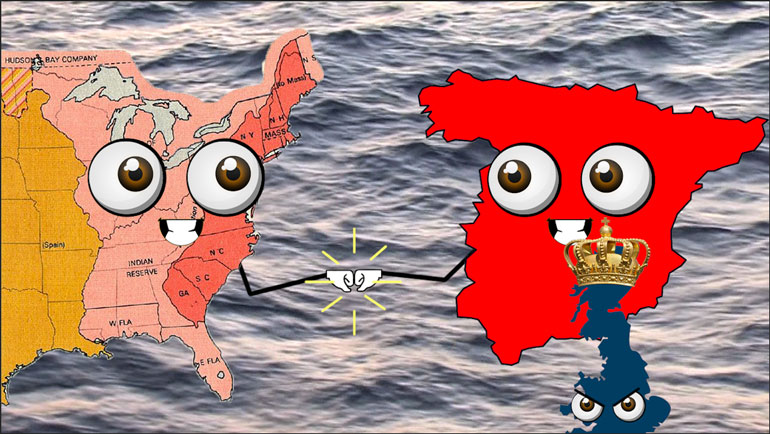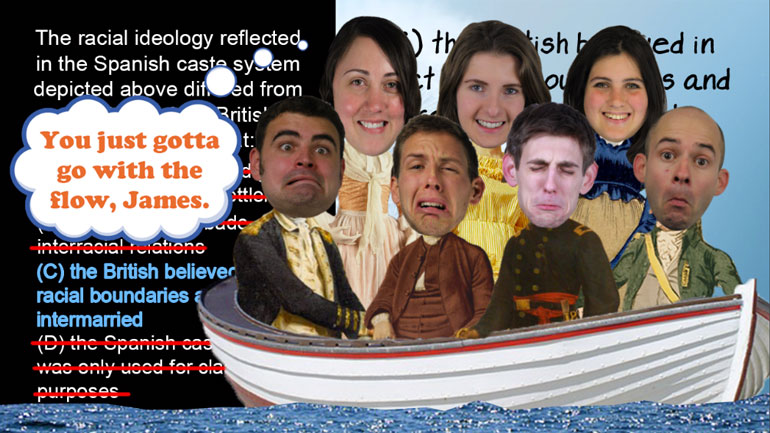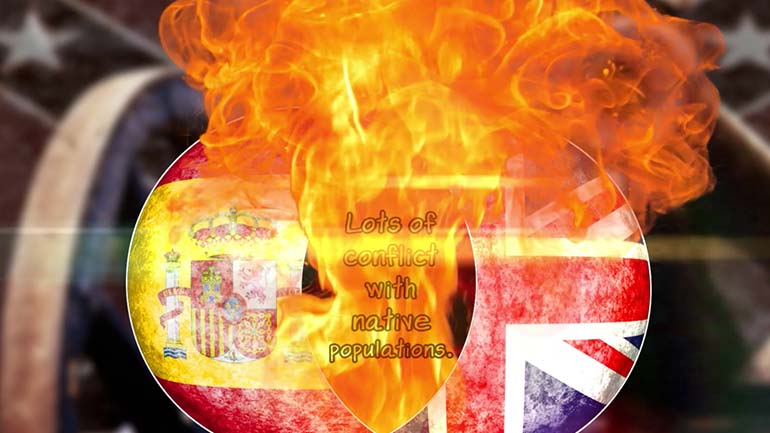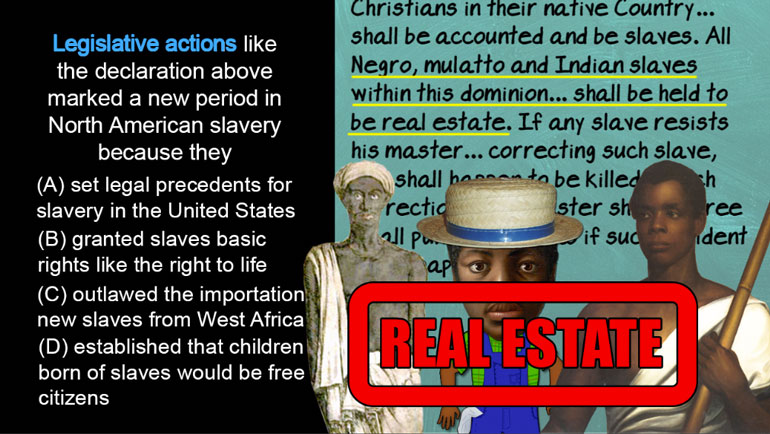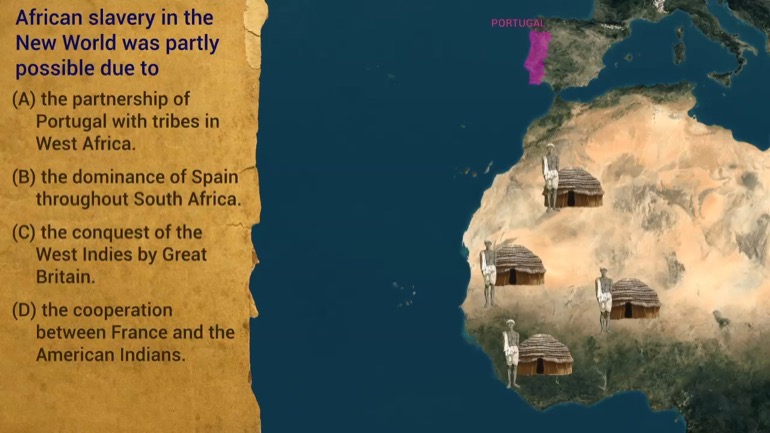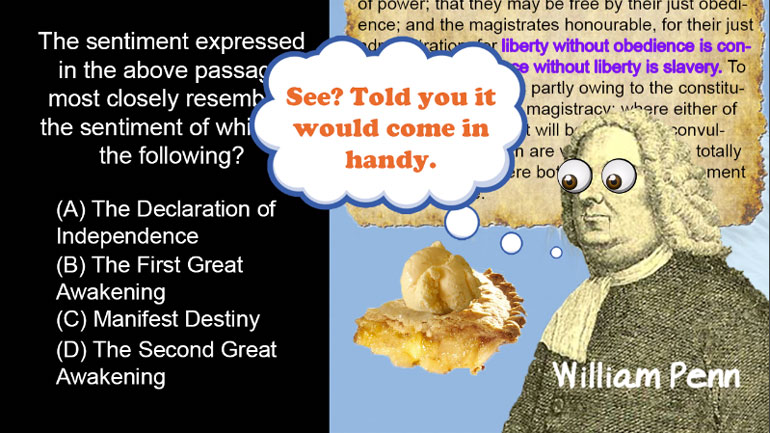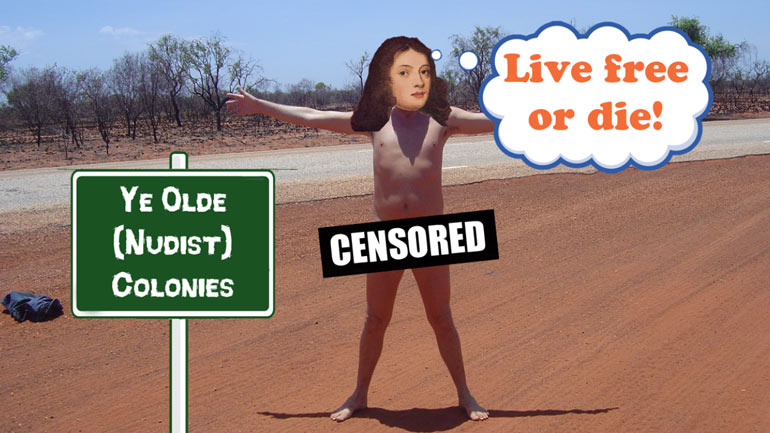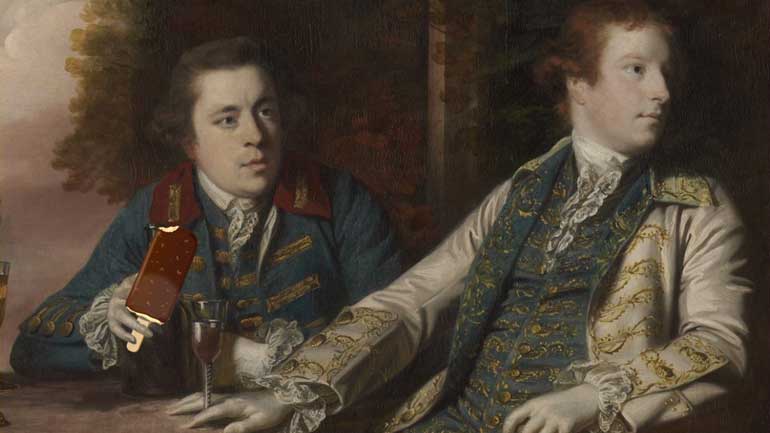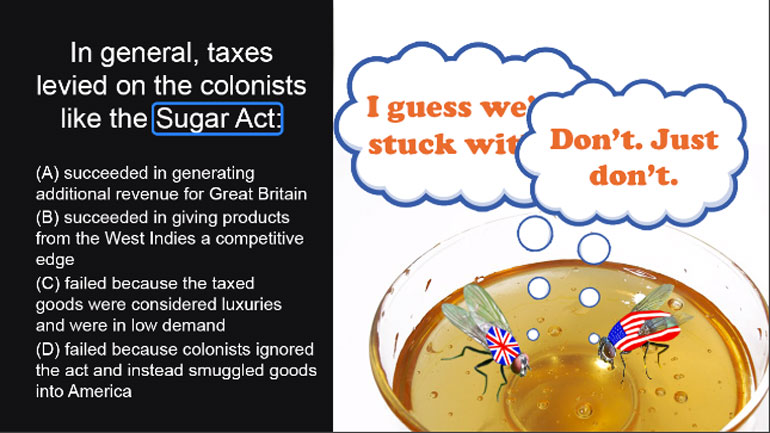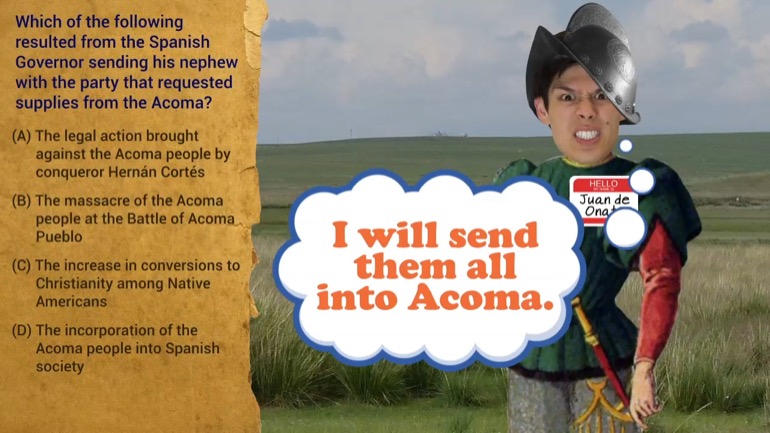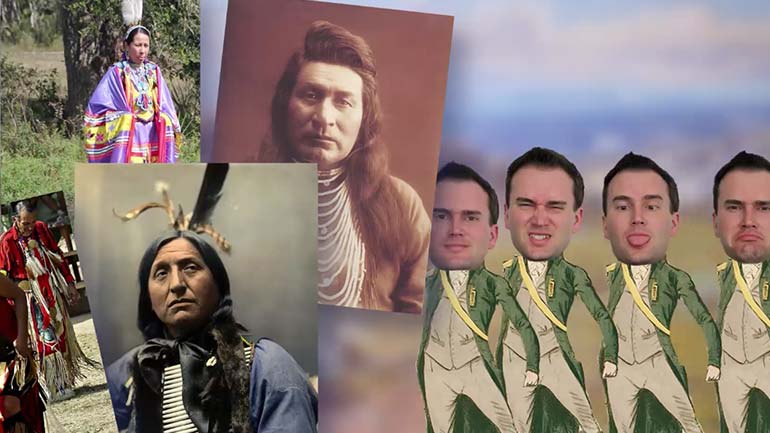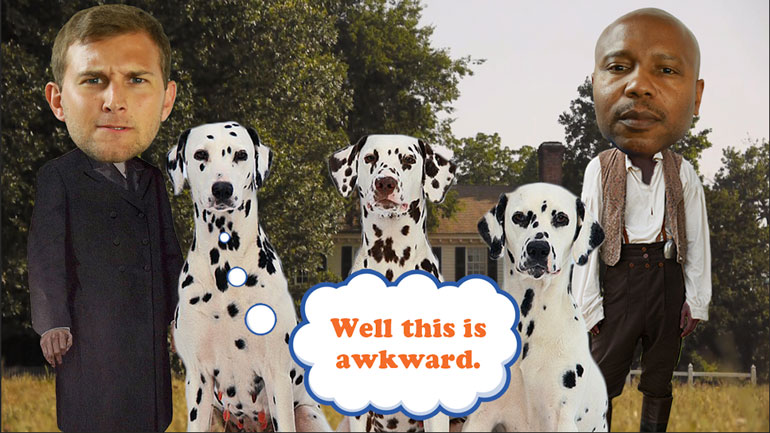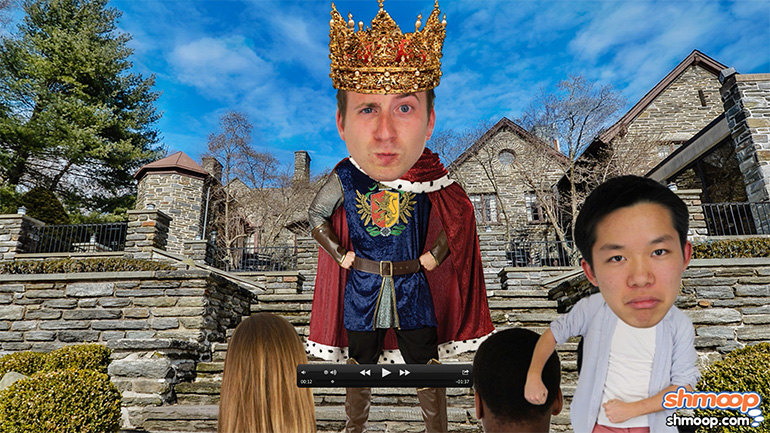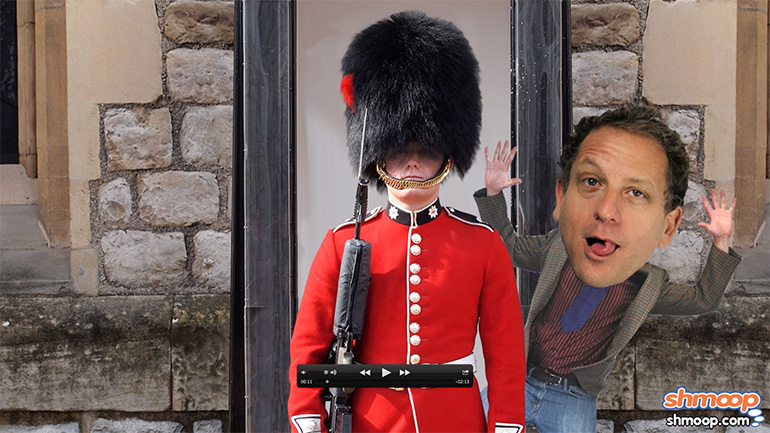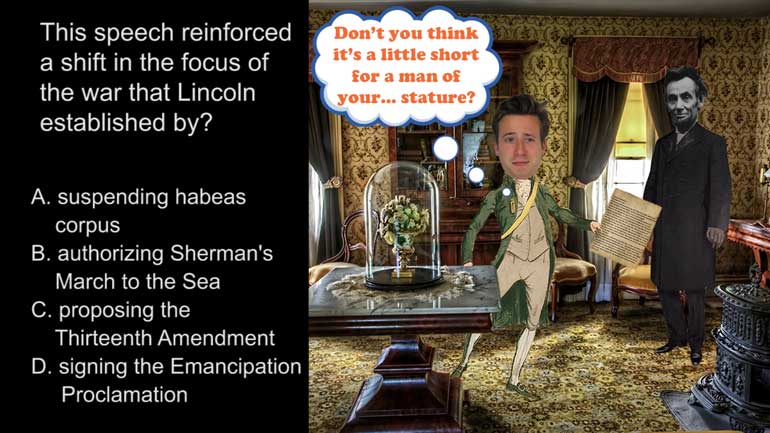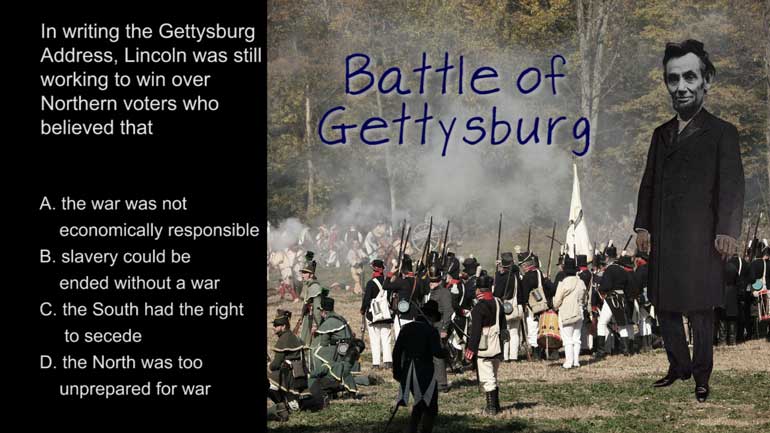ShmoopTube
Where Monty Python meets your 10th grade teacher.
Search Thousands of Shmoop Videos
Period 2: 1607–1754 Videos 18 videos
AP U.S. History 4.3 Period 2: 1607-1754. The image most directly reflects which of Britain's goals for the North American colonies?
AP U.S. History 1.1 Period 2: 1607–1754. The racial ideology reflected in the Spanish caste system depicted above differed from the views of the...
AP U.S. History 1.2 Period 2: 1607–1754. Conflicts between Spanish colonizers and native populations, compared to conflicts between British colon...
AP U.S. History 2.2 Period 2: 1690-1754 233 Views
Share It!
Description:
AP U.S. History 2.2 Period 2: 1690-1754. In general, taxes levied on the colonists like the Sugar Act...what?
Transcript
- 00:00
[ musical flourish ]
- 00:03
And here's your Shmoop du jour, brought to you by tax evasion,
- 00:07
hide and seek for accountants. Really.
- 00:09
All right, here's the excerpt.
- 00:11
[ mumbles ]
Full Transcript
- 00:14
[ mumbling continues ]
- 00:18
All right. And the question:
- 00:19
In general, taxes levied on the colonists
- 00:22
like the Sugar Act... what?
- 00:25
And here are your potential sweet, sweet answers.
- 00:28
[ pouring ]
- 00:32
Okay. Ever heard the phrase
- 00:34
"no taxation without representation?"
- 00:37
Well, that all started with the Sugar Act.
- 00:39
Colonists really didn't wanna pay taxes if they didn't have a voice in their government.
- 00:43
So, as you might imagine, things started to get a little sticky.
- 00:48
So did the Sugar Act
- 00:50
A - succeed in generating additional revenue for Great Britain?
- 00:54
Well, people were pretty miffed about the tax on sugar.
- 00:57
So much so that they refused to pay it.
- 01:00
Honestly, the whole thing was a huge failure.
- 01:02
Sort of like Crystal Pepsi.
- 01:03
Uh, what's Crystal Pepsi you ask? Exactly. Ask your parents.
- 01:07
It was around for 15 seconds.
- 01:08
So it's not A. And we can also eliminate B,
- 01:11
because we already figured out the Sugar Act
- 01:13
was nowhere near a success.
- 01:15
So did taxes like the Sugar Act C -
- 01:18
fail because the taxed goods were
- 01:20
considered luxuries and were in low demand?
- 01:23
Well, these taxes were put on sugar, tea, stamps,
- 01:25
the staples of everyday life.
- 01:27
So you better believe people were up in arms
- 01:30
when the things they most needed
- 01:32
became a whole lot more expensive.
- 01:33
So it's not C.
- 01:35
That must mean the Sugar Act
- 01:36
D - failed because colonists ignored the Act
- 01:40
and instead smuggled taxed goods into America.
- 01:43
You bet it did.
- 01:44
People didn't wanna pay taxes on sugar, so they either
- 01:47
flat-out refused to
- 01:49
or they snuck sugar into the country
- 01:50
illegally, getting that sweet fix however they could.
- 01:54
So D is the right answer.
- 01:57
[ groan ]
Related Videos
AP U.S. History Exam 2.45. The journey shown on the map was an example of...what?
AP U.S. History Exam 2.26. This speech reinforced a shift in the focus of the war that Lincoln established by...what?
What did the Spanish messengers bring with them to North America? Hint: you probably wouldn't be thrilled to get this for your next birthday.
AP U.S. History Diagnostic 24. How did the United States choose containment over the National Security Council Report in Latin America?
AP U.S. History Exam 2.25. In writing the Gettysburg Address, Lincoln was still working to win over Northern voters who believed that...what?
